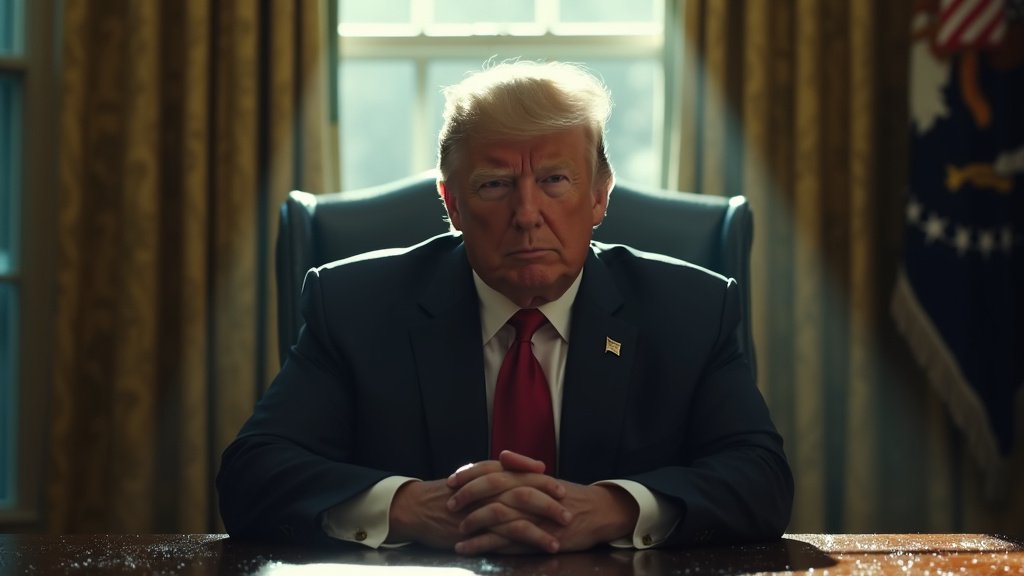Major developments reverberated across international relations and domestic policy on Thursday, May 30, 2025, highlighted by a symbolic return of the U.S. presence in Syria, ongoing tensions in the Middle East, and significant legal and health-related challenges facing the Trump administration at home.
US Re-engagement in Syria
In a move marking a significant shift in U.S. policy towards Syria, U.S. envoy Thomas Barrack oversaw the raising of the American flag over the ambassador’s residence in Damascus. This event marked the first time the U.S. flag has flown there since 2012, symbolizing a potential step towards normalization or increased diplomatic engagement following President Trump’s recent decision to lift sanctions on the Syrian government.
The raising of the flag comes amidst complex geopolitical dynamics in the region, signaling Washington’s potential intent to re-establish a more formal diplomatic footprint after years of reduced representation.
Middle East Tensions and Ceasefire Efforts
The volatile situation in the Middle East remained a focal point.
According to reports from Reuters, Saudi Prince Khaled bin Salman delivered a stern warning to Iran last month, urging the Islamic Republic to accept President Trump’s offer for a new nuclear agreement. The Prince reportedly stated that failure to reach a deal could leave Iran facing military action from Israel, underscoring the high stakes involved in the stalled nuclear negotiations.
Simultaneously, efforts continued to de-escalate the conflict in Gaza. The White House announced that Israel had agreed to a U.S.-crafted ceasefire proposal. This plan, submitted to Hamas by envoy Steve Whit, includes key provisions such as a 60-day truce, the redeployment of Israeli troops from populated areas of Gaza, a captive exchange that would include at least 10 living Israelis, and a significant increase in humanitarian aid delivery into the territory.
Hamas is currently studying the proposed agreement but has voiced concerns. The group stated that the deal in its current form could perpetuate killing and famine in Gaza, suggesting that significant hurdles remain before an agreement can be reached.
Domestic Policy and Legal Challenges
The Trump administration faced headwinds on several domestic fronts.
A federal court in Washington D.C. delivered a blow to the administration’s trade policy, blocking President Trump’s tariffs. This ruling sets the stage for a potentially landmark legal battle that is widely expected to reach the Supreme Court. The ongoing trade disputes have had a tangible impact on American businesses; Reuters reports that Trump’s trade war has already cost companies an estimated $34 billion.
The Department of Health and Human Services also found itself embroiled in controversy. A report authored by Health Secretary Robert F. Kennedy Jr., titled “Make America Healthy Again,” was discovered to contain citations to at least seven fabricated studies. The revelation has raised questions about the integrity of the department’s research and data handling.
In a separate but related development, the Health Department cancelled a substantial $600 million contract with the biotechnology company Moderna. The contract was for the procurement of mRNA vaccines, though the specific reasons for the cancellation were not immediately detailed.
Legal Battles Over Rights and Religion
Legal challenges concerning civil liberties and religious freedom continued to unfold.
The American Civil Liberties Union (ACLU) and a coalition of other groups have filed a lawsuit seeking to block a controversial new law in Texas. The measure, approved by the Texas Senate on Wednesday with a decisive 28-3 vote, mandates that public schools throughout the state display the Ten Commandments in every classroom. Texas Governor Greg Abbott has publicly vowed to sign the bill into law, despite the ACLU labelling it as fundamentally unconstitutional and a clear violation of the separation of church and state.
Meanwhile, in New York, a judge extended a temporary restraining order providing protection against deportation for Columbia University student Yansio Chung. The extension grants Chung legal protection until a scheduled hearing on June 5th, allowing his case to be further reviewed by the court.
These diverse events highlight a day of significant developments across international diplomacy, regional conflicts, and key domestic legal and policy arenas, underscoring the complex challenges facing policymakers globally and within the United States.










